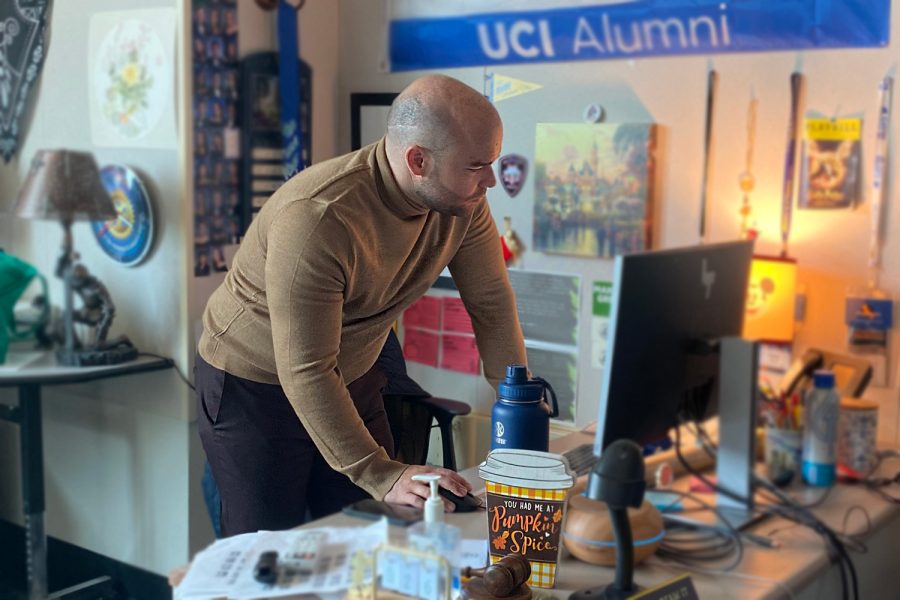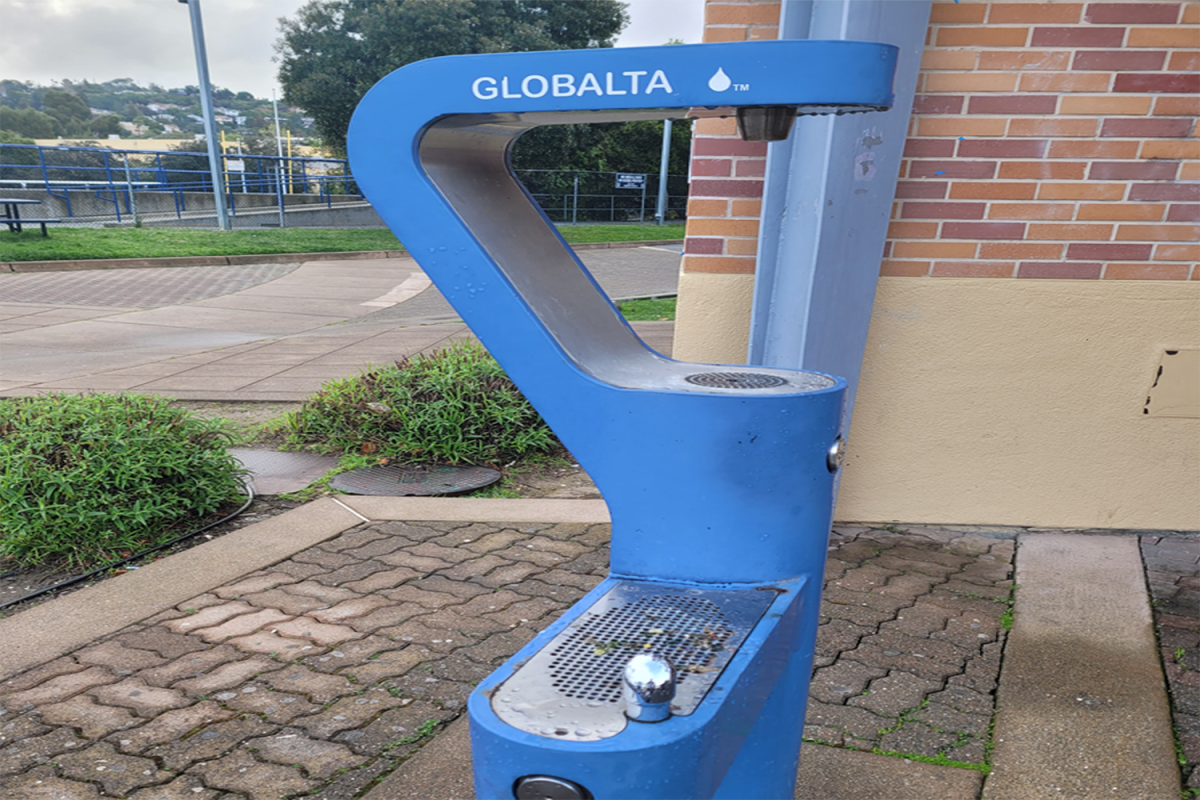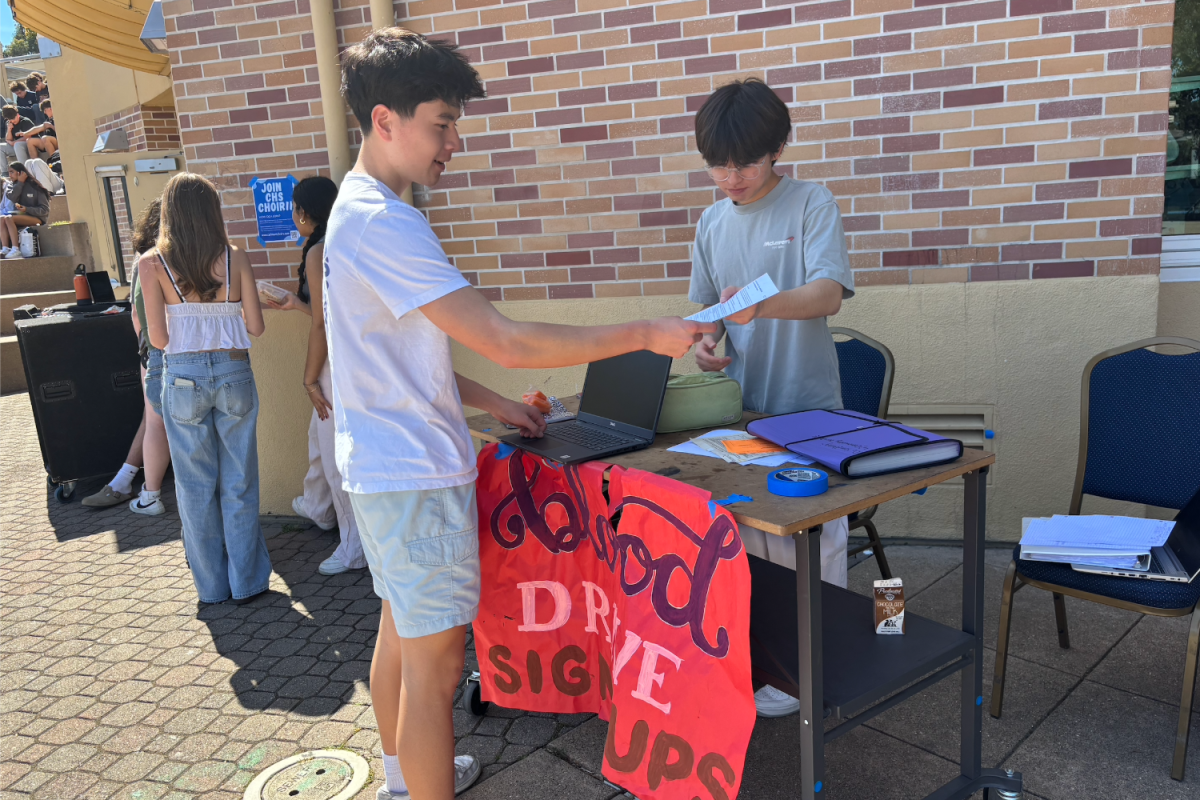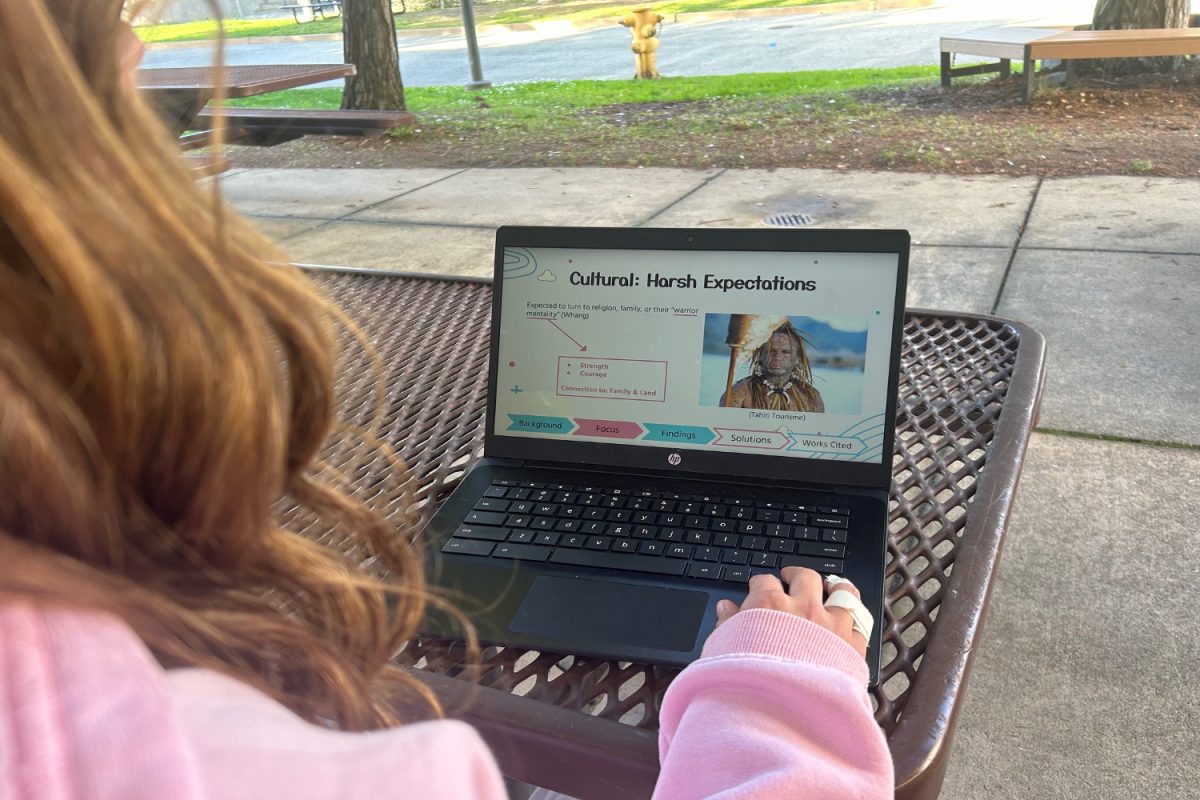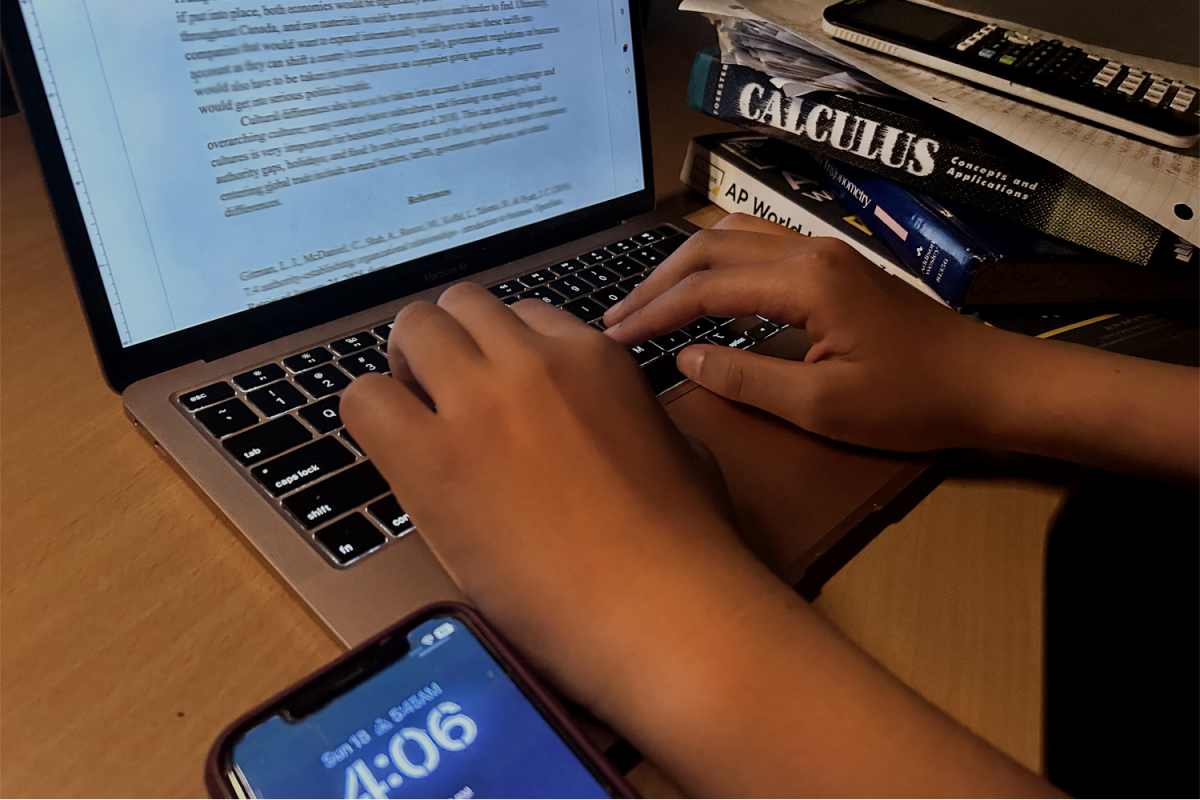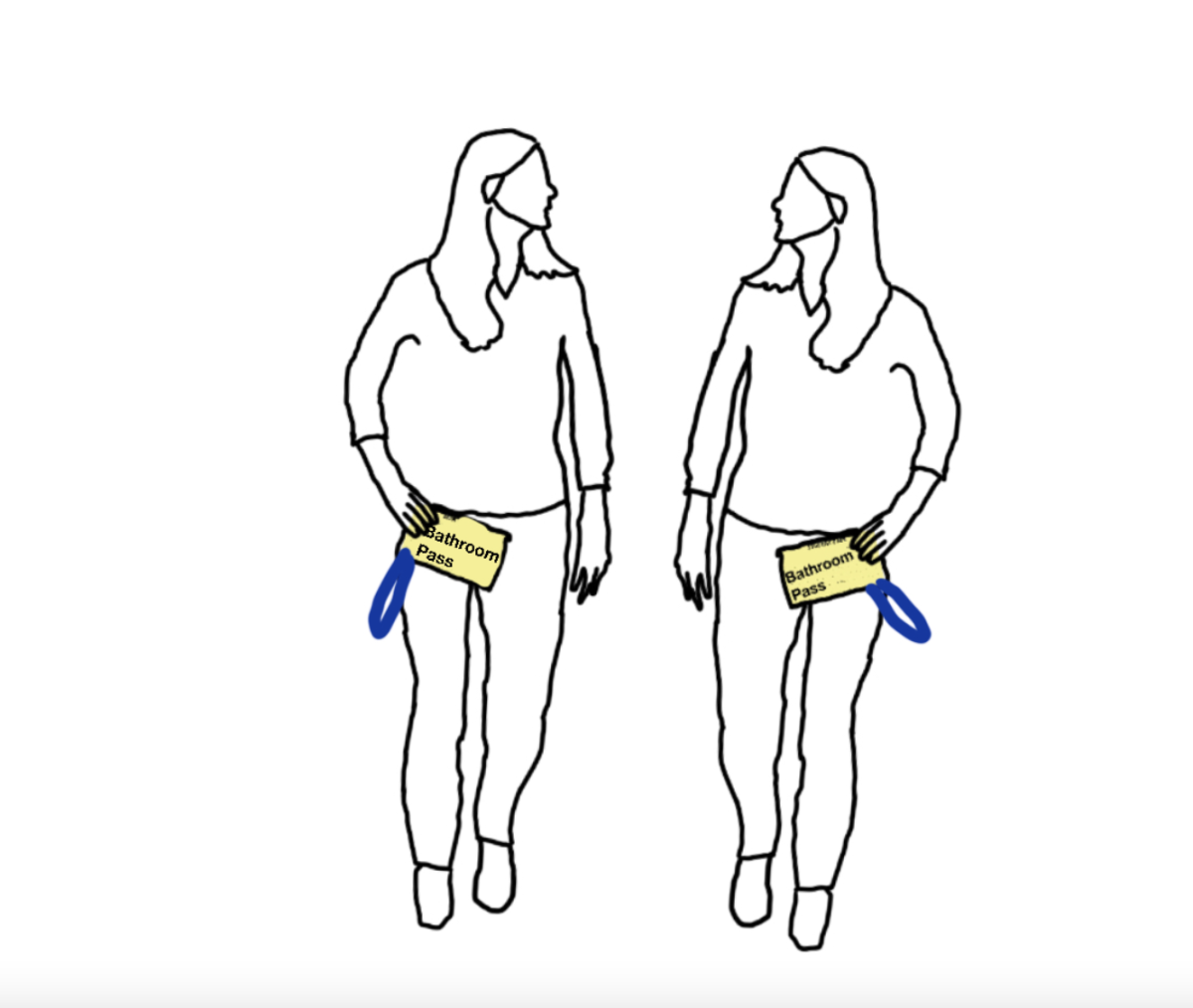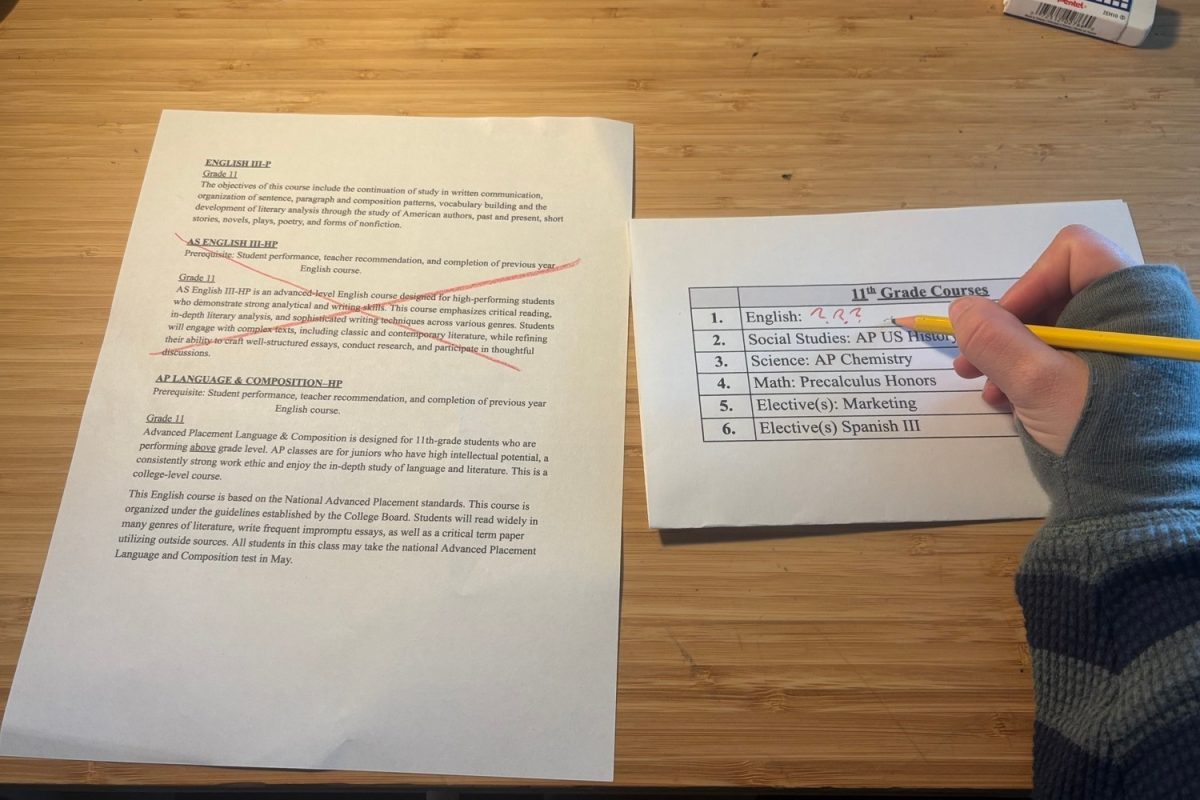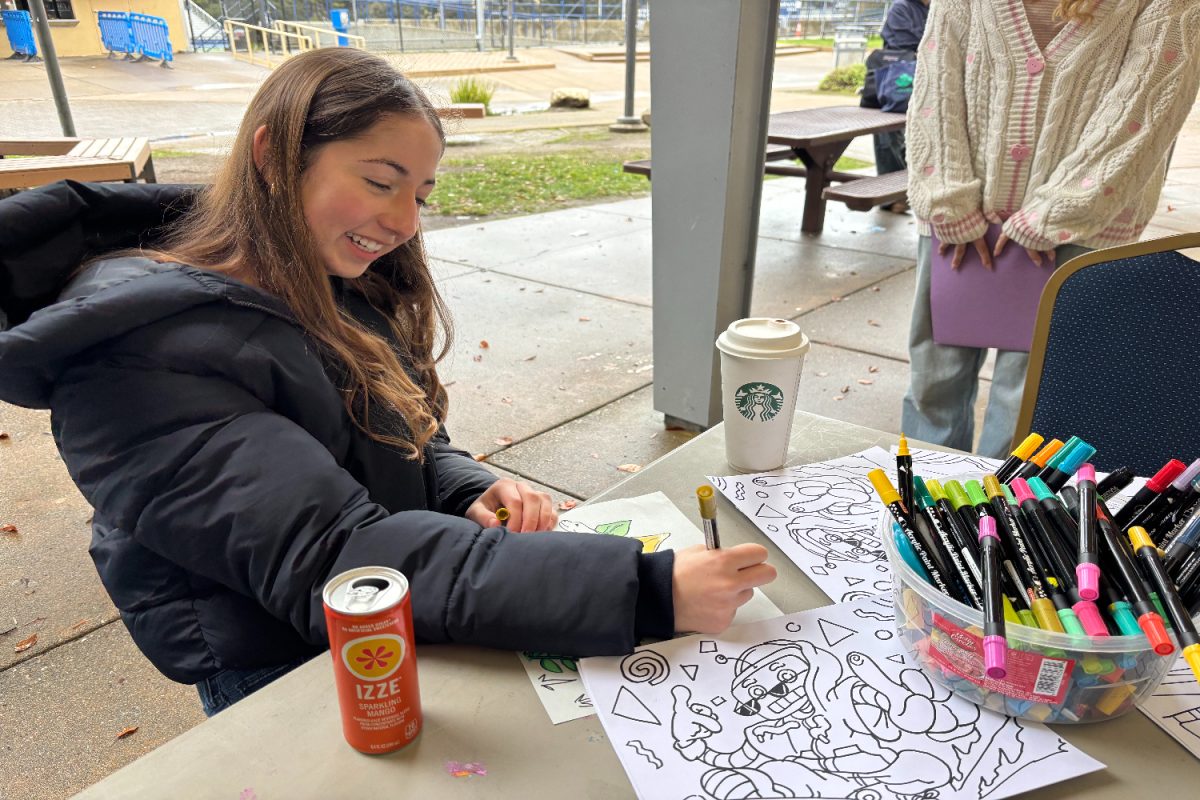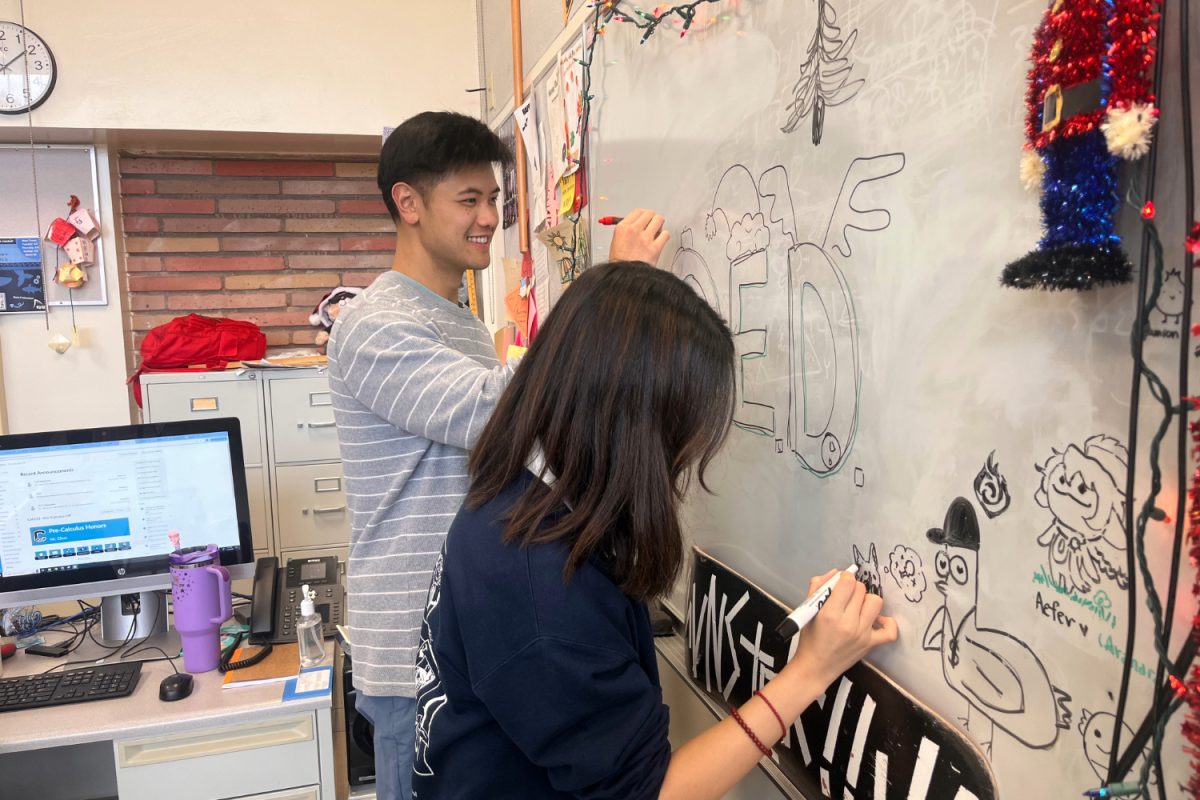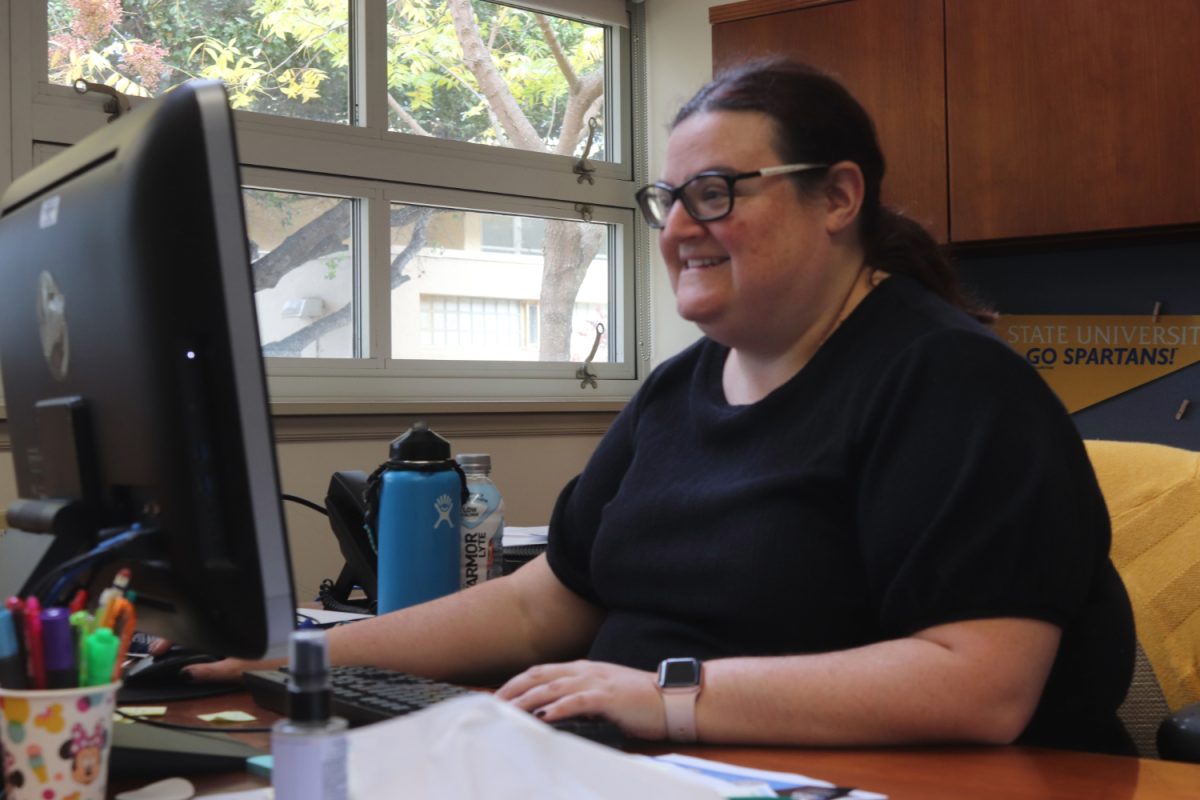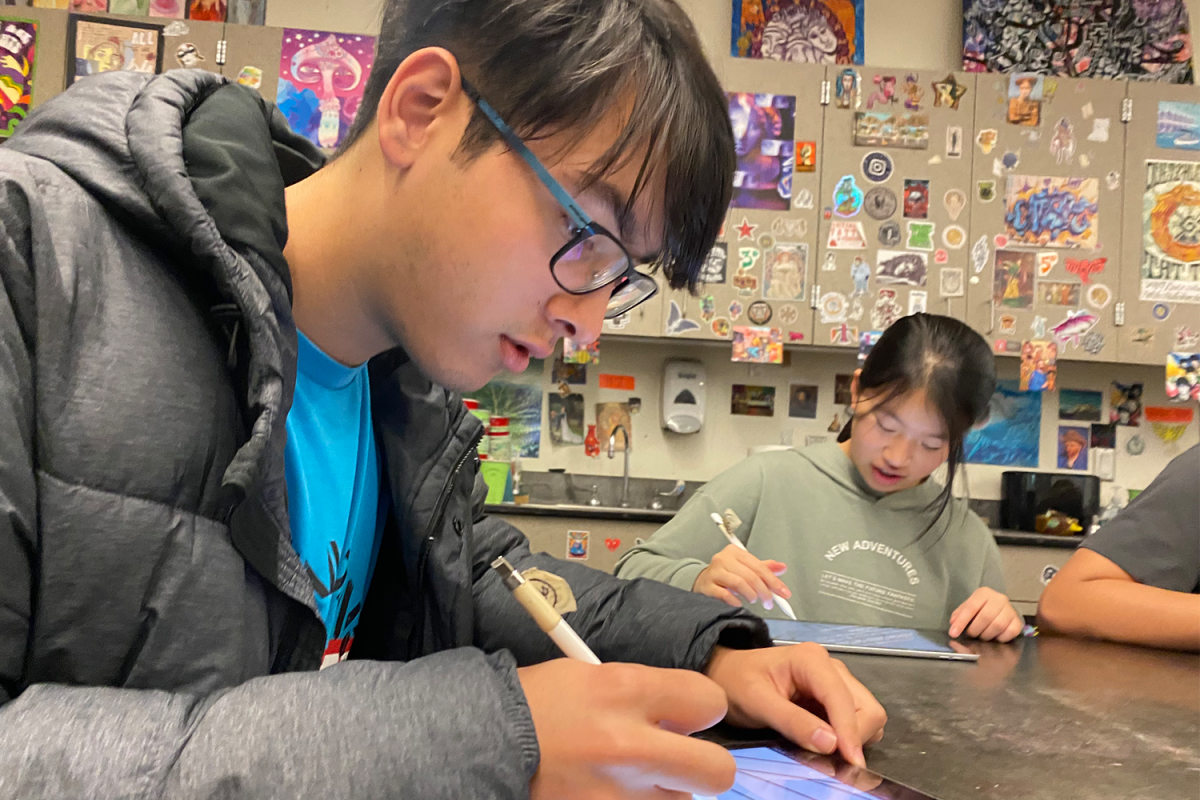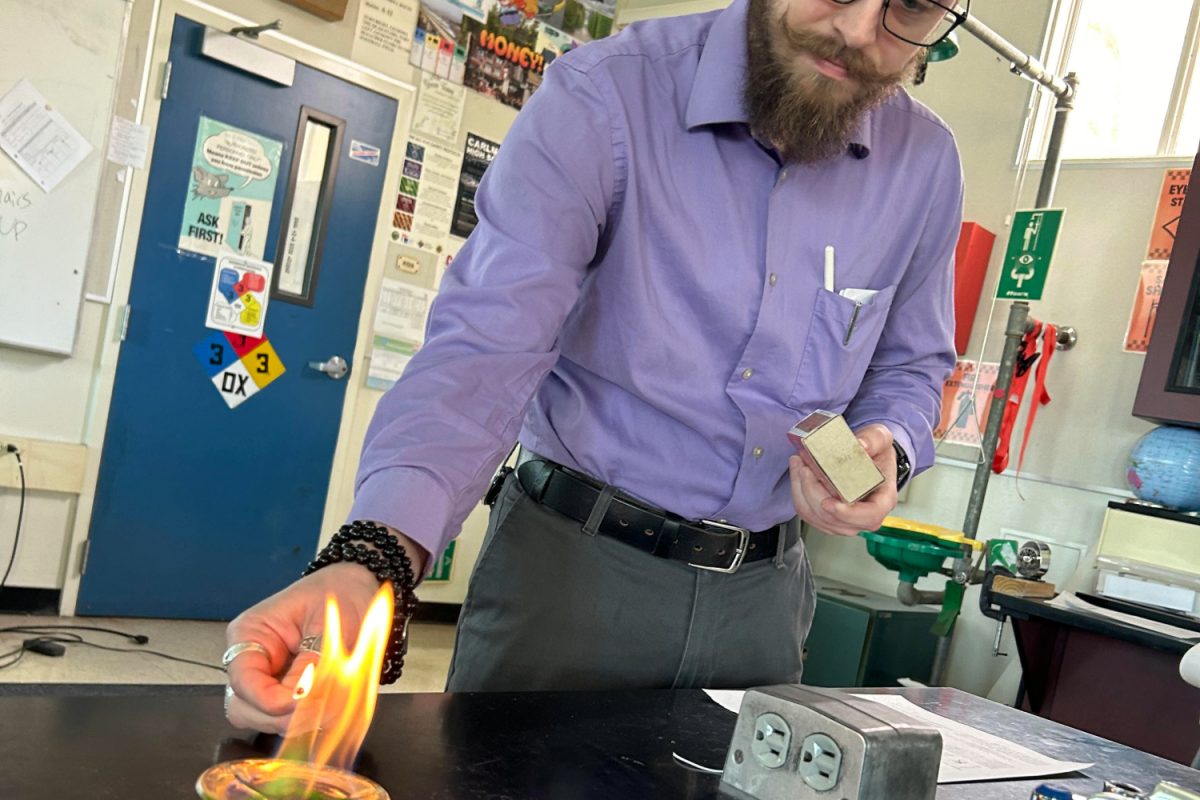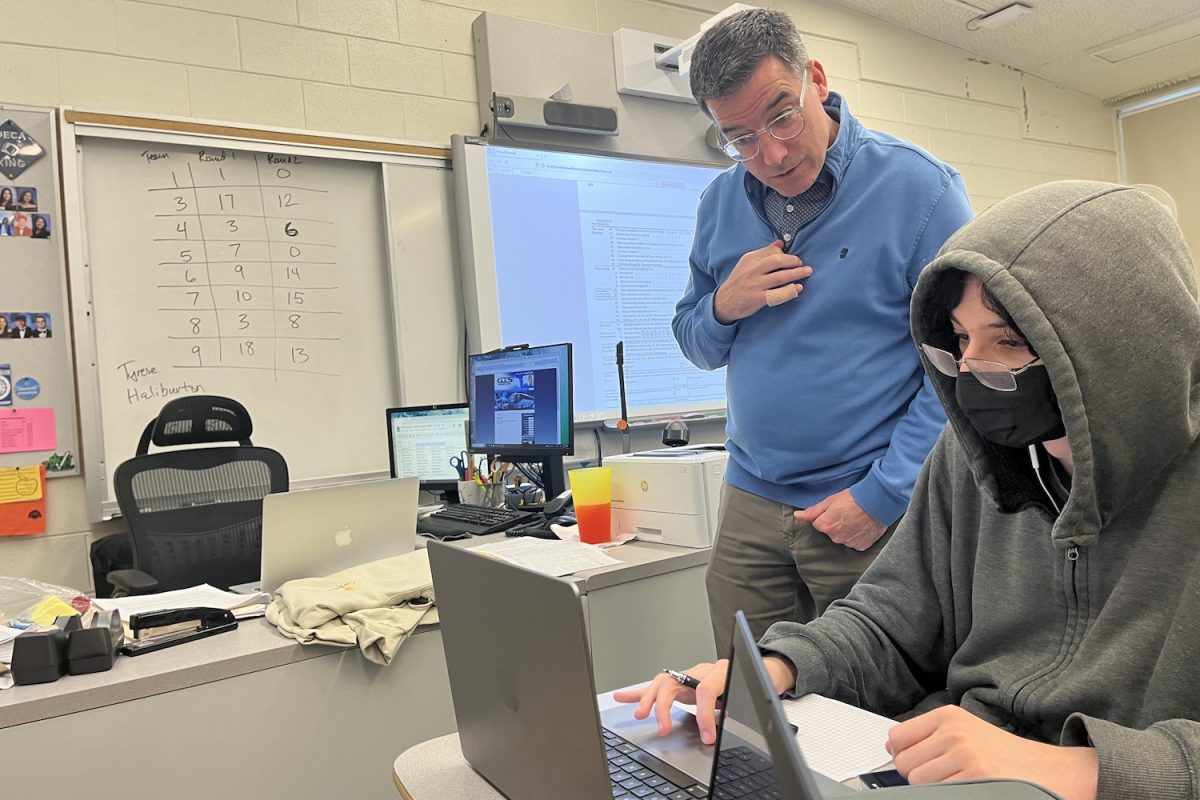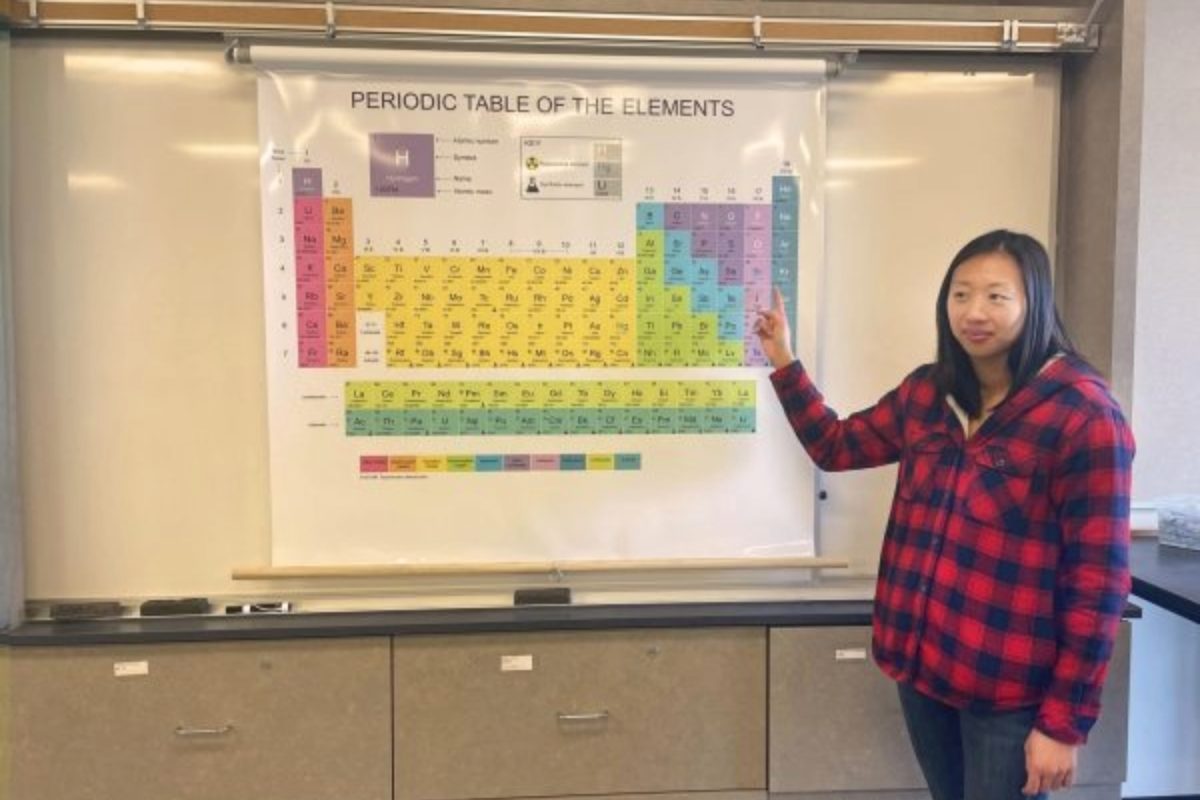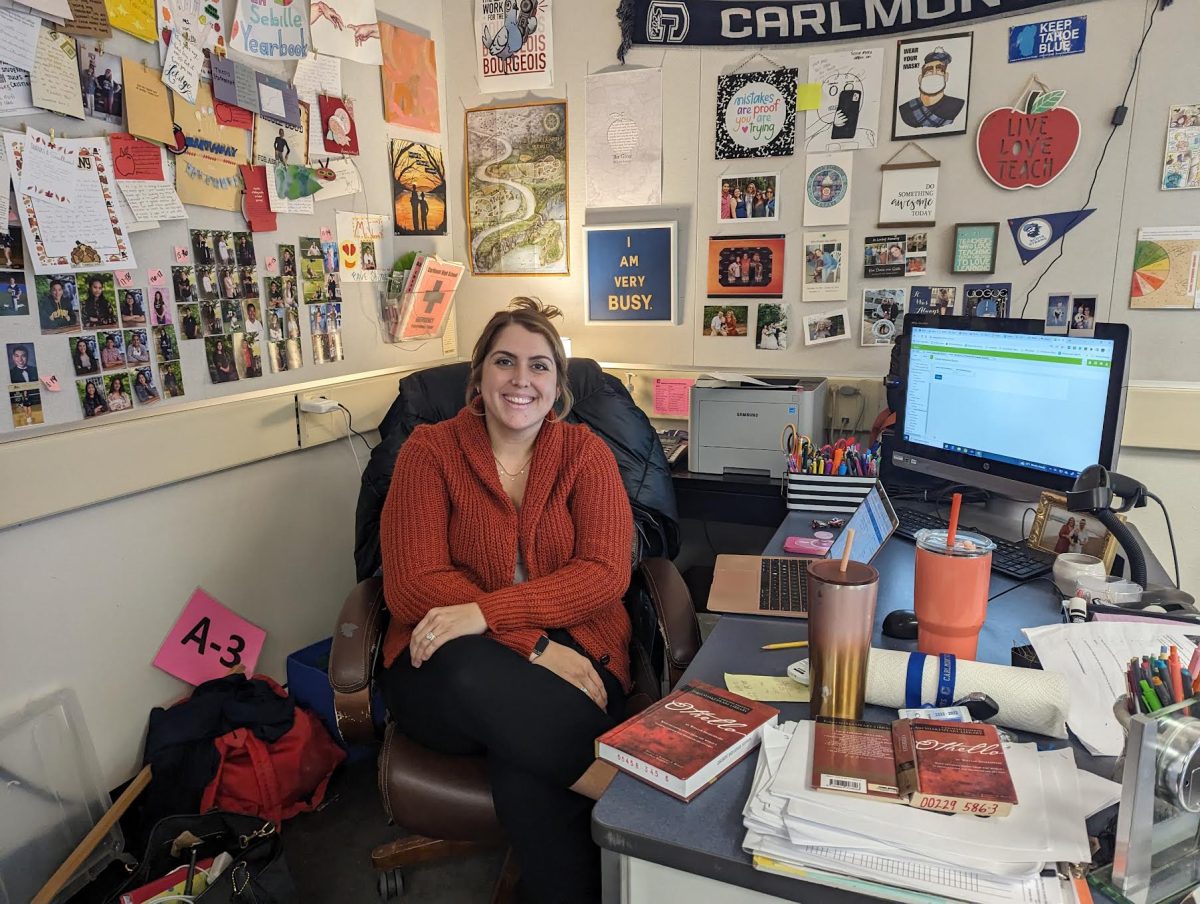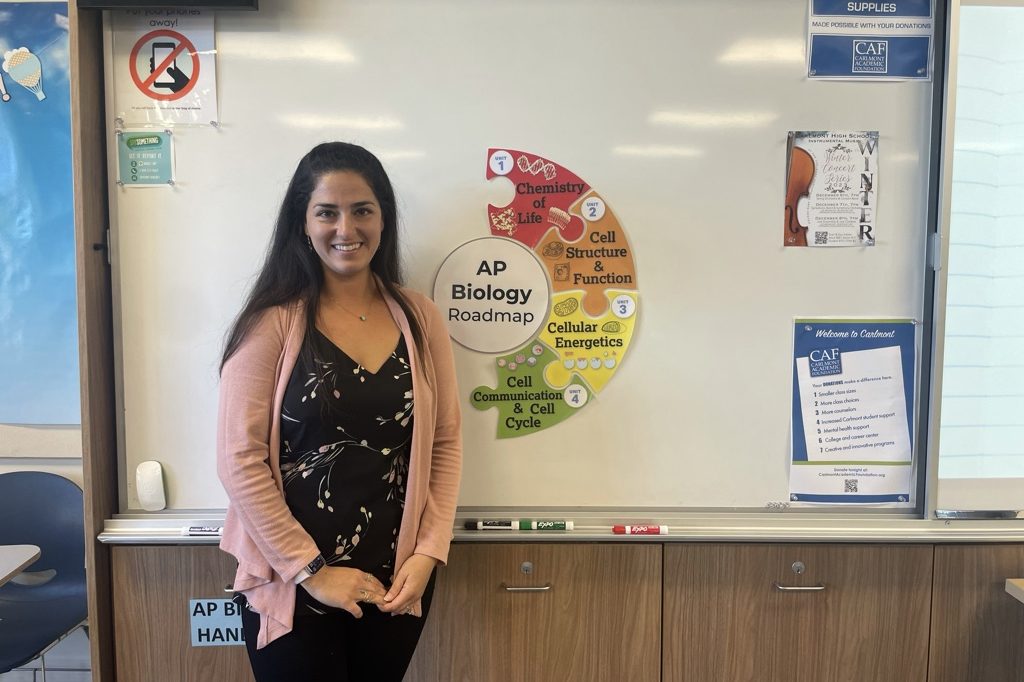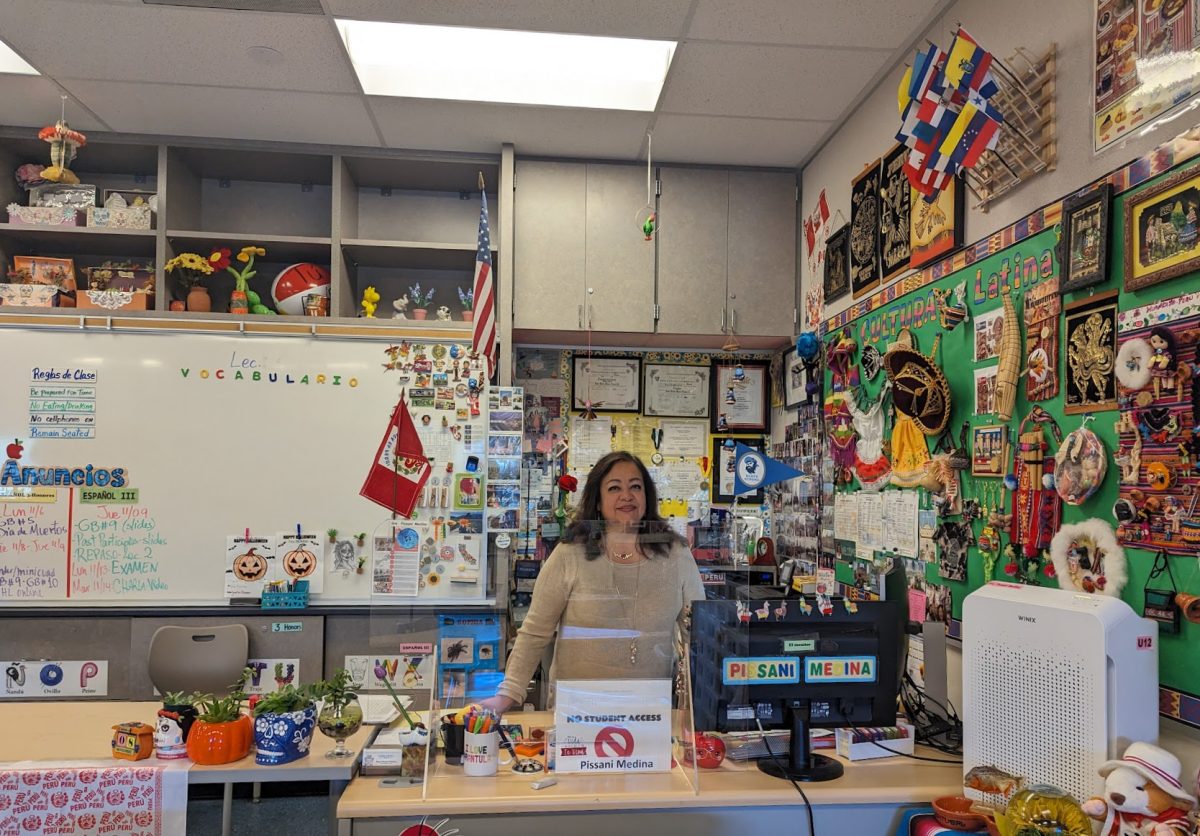Dodging trees and hordes of people as they walk across the paved stones of upper D-Hall, a student might hear the lyrics to “September” as they pass D23.
This is Greer Stone’s AP Government and Microeconomics classroom. He’s playing “September” because it’s the first day of fall, Sept. 22, and he loves fall because it comes with pumpkin spice lattes and sweaters.
Stone has been teaching at Carlmont for two years, but he’s been a teacher for a total of five. Before his teaching career, he was a full-time lawyer, the black sheep among a family full of educators. However, Stone was also a substitute teacher while he was in law school, which sparked his interest in teaching again.
“I just kept coming back to this idea that I can be more effective in helping people by being a teacher and giving back in that way rather than as an attorney,” Stone said. “As an attorney, you’re really addressing already broken situations, whereas education, I think, is more of a panacea to be able to prevent those situations from happening in the first place.”
Stone said that he knew Carlmont was where he wanted to teach from the first moment he stepped on campus. The first time he came to interview, he couldn’t find the office, prompting him to ask a student.
“That student was so kind, so respectful. I think it was the middle of a passing period, and they took the time to direct me and walk me through the campus. Seeing the interaction amongst the students, I could tell it was a very warm, welcoming place,” Stone said.
On top of teaching and continuing to practice law part-time, Stone is also a Palo Alto City Council member. This can be challenging for him, and he’s often swamped, running out of class at the end of the day to make his meetings in Palo Alto. Still, he thinks being a city council member is a positive for his class.
“I think it’s an overall added benefit; it’s nice – especially in an AP Government class – to be able to bring that real-world experience, being an elected official and policymaker myself. I enjoy being able to share those stories,” Stone said.
He is also able to use his government connections to bring in speakers for his classes, such as state Sen. Josh Becker, who he expects to return this year.
Yet, connections to the real world aren’t the only parts of his jobs outside of Carlmont that define his message to his students.
“One thing I always hope to instill in students – as somebody who grew up in the Bay Area, in a very similar community as San Carlos and Belmont, being in Palo Alto – is that success can be defined in a lot of different ways, and it’s always subjective. Life is just too short, and you spend far too much time at work to do something that you’re not passionate about and that you don’t love,” Stone said.
Indeed, Stone is focused less on the academic pressure of school and more on community building and mental health. He has his students provide an act of kindness, a joke, and a piece of good news at the start of every day to build community. He also allows students who fail a test to raise their grades to a C with test corrections, ensuring that every student can pass his class if they try.
This illustrates another aspect of his teaching style: students taking responsibility for their learning. Stone believes that students will succeed in his class if they are active participants by asking questions and taking notes, actively studying for the exams, and reflecting on their study habits after he returns test scores. In this way, he hopes to prepare students for not just the AP exam but also for the academic challenges they will face in college.
“Too frequently, we don’t reflect on our own study habits,” Stone said. “As somebody who was a terrible test taker in high school and who had to go through a lot of different strategies, through just trying different things, I figured out what really works for studying for me. That’s a personal decision for every student.”
Stone is focused on the student, not the curriculum.
“It always comes down to the students,” Stone said. “That’s why I do it. It’s why a lot of teachers do it. So when you’re able to form those fun connections, and especially when you have a student that comes into your class – especially for an AP class – and says, ‘Oh, this is my favorite time of the day,’ or ‘This is the class where I feel most comfortable, relaxed,’ it’s a nice compliment because for me it reaffirms why I [teach] and my philosophy. A student can enjoy an AP class. That’s pretty cool for me.”
As we finish our interview, Stone calls out to his students as they file out of the classroom.
“Have a great weekend! I’ll see you on Monday!”

